Jelena Barac is an ECLA of Bard BA student who spent the 3rd year abroad at Pontifícia Universidade Católica do Rio de Janeiro
When I was little, two ladies that were our neighbors took care of me while my mom was at work. They would feed me delicious smoked bacon, allow me to transform their living room every day into an architectural masterpiece—of which only children are capable—and let me rummage through their books. Among these books they had one on world wonders. I went through that book million times, marveling at the Colossus of Rhodes or the Great Wall of China. Among the wonders of the world there was—or at least that is what my memory would like me to believe—a picture of Rio de Janeiro. It was a picture of Copacabana beach with twinkling lights taken at night from a bird’s perspective. Later, my mother would tell me that this city was considered the most beautiful city in the world. The image of it as a beautiful place stayed engraved in my mind, more so for the light that kindled in my mom´s eyes and the conviction with which she spoke of it—an envy-less expression of mere gratitude that something so beautiful even exists in the world—than because of the picture in the book of wonders. That is why this city stayed in my mind adorned with night lights and the indigo gleam of the ocean: it mimicked the joyful expression of my mother’s face while she spoke about it, a face similar to that of a person immersed deep into a pleasant dream. And now, I am here, immersed in those city lights, as if I had become smaller and had walked right into that picture in the big book of wonders, with its shiny and sleek pages, that made a soft swoosh sound, during one of my numerous explorations of it.
Just like people who, after the first impression, form more sharply and settle deeper in the clay of our opinions about them, the cities too emerge clearer out of the fog of imagination and expectations. The streets become familiar, somewhat stricter and more real. The sounds and smells – anticipated, at times even ignored. Surprisingly, the more I get to know the city, the more its surreality emerges and blends in with the image from the book. Perhaps in this way my mind is attempting to contextualize all this beauty. It is because of this beauty that my brain is continuously left in a slight state of doubt over its real existence.
Another feeling overwhelms me repeatedly. I call it foreseen, or anticipated, or imminent nostalgia; or as the Brazilians would say, so proud of that word, saudade. Nostalgia is longing for the past, the things that have happened; it is reminiscence over what has been and no longer is. But, I experience it differently. In the moment of great joy, when I realize that ”these are the best times of our lives,” I feel nostalgia for what is already happening in the moment when it is happening; as some sort of reverse foresight for what will be. It is a very Pessoanian feeling. Like his regret today for the regret he will feel tomorrow, my nostalgia comes in a similar fashion before its due time, and so mixed with joy, defines the bitter-sweet Shakespearean sorrow. I could, indeed, never, feel time linearly. But after all, who could?
Recently one of my friends called me to go and see a small play in a theater nearby (“nearby” meaning only one hour away). In the bus I was watching ”entertainment” TV, when the news, titled Bad News (about traffic jams or some delayed works), were followed by other titled Good News. I was completely baffled. It was not big news, but I found the fact that there was a section for the ”good news” at all brilliant. What a feedback! However, what confused me were the thoughts of what kind of society do I find myself in that needs to be told what the good news is? The good old ‘where there is a demand, there is a supply’ led me to think that these people approach their life in a manner similar to that in which they organize their news. ‘Alright there are bad things, but the good news is’ …
Oscar Wilde’s famous “We are all in the gutter, but some of us are looking at the stars” comes to a literal existence every time I walk into a favela. Built like physical realizations of M.C. Escher’s surreal perspective paintings, they spread into blocks and blocks of unplanned houses and rise up the hill overlooking the sparkling Ipanema lights. From far away they appear as a pack of wolves whose eyes are full of vile glow in the dead of the night. From close by they are dungeons with secret passages, opening up at every side. Stairs that lead right and left, up and down and, if there were another direction, they would have led in it too. The ability of the people to orient themselves within these mazes is amazing. They achieve it partially with the names that developed for random direction–marking purposes (esquina, supermerkado etc.), and partially with the knowledge similar to that of my grandma about her neighborhood, that is about ”who lives in which house.” These houses without facades, despite their obvious bricks and heavy concrete, appear as if they are floating. Each brick has been carried up the hill and up the endless stairs on the shoulders of the house owner. Almost everyone here has made their own house. It is as if they mixed the cement in their own sweat and exhaustion. So now, when the UPP (Pacifying Police Unit) is entering the favelas to ”clean them”, it is not only the houses they are destroying, but also the fibers of every muscle and the salt of every sweat drop these people put into building them.
The bus was still trotting with amazing speed. I felt myself within a can that was going to fall apart at any moment. Another news came up on the TV screen. It was a commercial about a school of English followed by an outrageous question: “Are you ready to greet the tourists this summer?” I felt a little nauseated. I understand that this city lives partly from tourism, among other things, but this kind of message reeked of colonization and its peculiar sourness. I felt like it infantilizes the people in Rio. “Greet the tourists that are coming to your city in their own language.” Adapt for the fathers of your nation.
When I was at the main station a few days before that, I heard a woman complaining about it not being organized or easily accessible, not because she was personally bothered by it, but because of “how an Englishman or a Frenchman is supposed to find their way through.” Two realities are being mixed together here: the one of the people investing everything in the Olympic hope, and the other of the people deeming the Olympics an excuse for the politicians to steal the money and free the space in the favelas for the foreign real estate investors. As always, both sides have their right points and delusions. It is rather hard for me as a foreigner to judge this situation as “either/or.” But, as my landlord says: ”This is South America. Things here do not last. It’s smartest to wait until the wave of the Olympic and the World Cup is over and then make decisions.”
The bus finally came to my street and the driver asked a random passer-by in the street where the theater was, then drove off really slowly to make sure I hit the right street. It was important to him that I, who was nobody to him, would find the right street. Sure, people in Europe and the USA are polite as well, but this was more than politeness. Here people give themselves up completely. Whether it has something to do with bare living, poverty or heat, I am not sure. Perhaps it was the sun, or the beats of samba, or the cultural shock, or who knows what, that influenced the melting of my hard, West-European, icy folds. I feel everything accentuated: love, pain, loneliness, belonging, joy… I still find myself ephemeral, situated between the real and my thoughts, like always, but I feel––palpably feel––all those things I only knew existed in Europe, all those things I thought I lost after adolescence. Whether this is a moving away from intellectual existence or coming closer to it, is a question I am unable to answer. Perhaps I am a bear caught fingers-deep in a bee-hive.
While I was walking to the theater I was thinking about a football game to which we went a week ago. The game was rather anti-climactic and as I watched the fans going wild over their respective teams I could only think of years and years of evolution and Nietzsche’s “It’s not lies that move us away from the truth, but convictions.” As the people cheered, the vendors of juice and ice cream were passing by, yelling their offers. These people are everywhere. The fact that slavery is over does not mean there are no slaves. One guy was wearing a Nestle shirt with the prices of different ice-creams written on it. This man was no longer a man. He was a walking Nestle commercial. His existence was summed down to: Gojaba ice-cream of 5 reais and the Abacaxi of 4 reais. These people turned into walking ice-creams, pastels, mate tea; specters of our needs––their flesh and blood secondary to out thirst and hunger. Is not this even worse than slavery?
The play, which I managed to follow almost completely, thanks to my soap-opera Portuguese, was about two friends who lived together for over 20 years. The characters were boxed, which suits the expectation of the people––that is, they were clearly defined. One was an organized and hard working parent figure, the other a fat ex-boxer, childish and lazy, but amiable. At some point they realize that they were in love with the same woman 20 years ago. Over fights and memories and the resurfacing of love, they decide to invite her for dinner. Their transformation from men to boys in their preparation for the dinner is both tragic and comic, with a touch of sweetness added to it. Here, their boxed characters blur their lines and the spectator is bought completely. Finally, when the moment of her arrival comes, the bell is heard (as they already started eating, they think it over, there is a moment of suspense) but in the end they don’t open the door. They just continue to enjoy their special dinner for themselves, having realized during the preparation just how much they mean to each other. Their 20-years-of-living-together connection is more important than a specter of a love past.
But two things stayed in my mind after that play. Firstly, they quote a philosopher who asserts that every book you read makes you lose three friends. Secondly, the “Nessun Dorma” that played every now and then left me in a dreamy and ponderous mood—brooding over the explanation of it, given by one of the actors. The stories need to be told and retold; they are the keepers and at the same time the builders of memories. “Nessun dorma! Nessun dorma! Tu pure, o Principessa, nella tua fredda stanza, guardi le stelle che tremano d’amore, e di speranza!”-”None shall sleep! None shall sleep! Even you, O Princess, in your cold bedroom, watch the stars that tremble with love and with hope!”

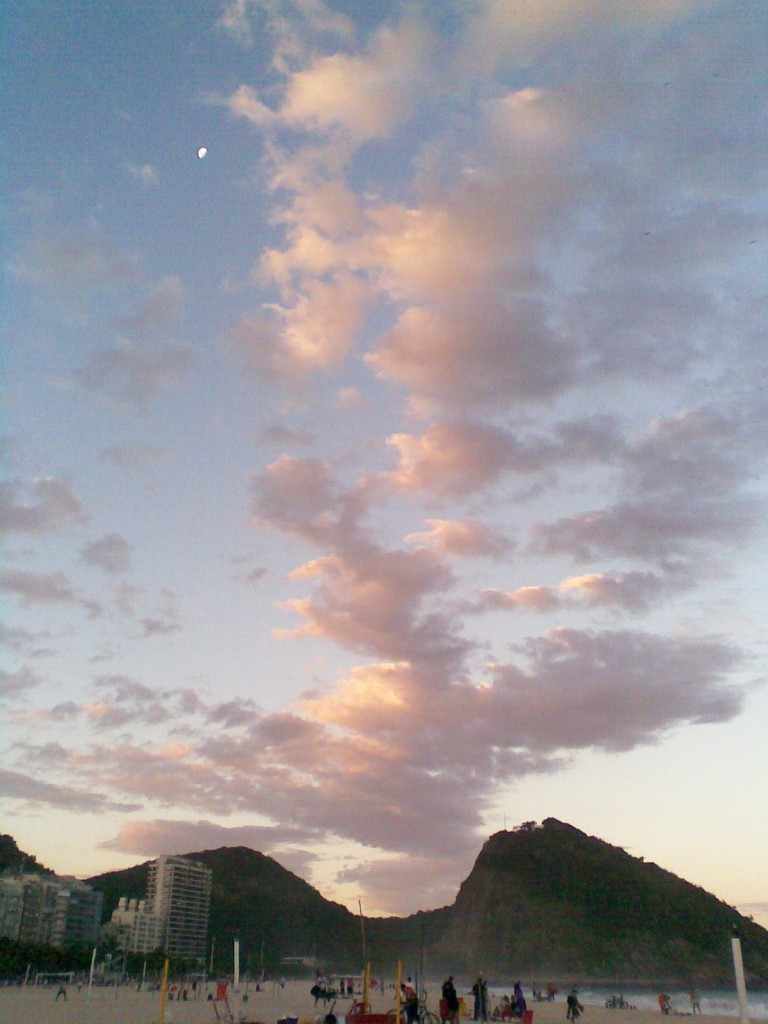

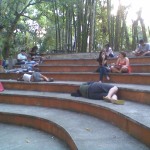


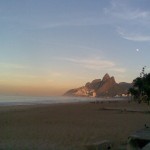
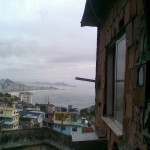
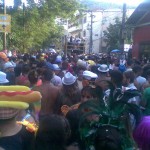
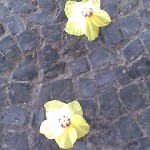
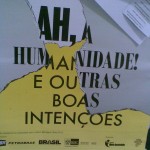
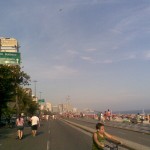
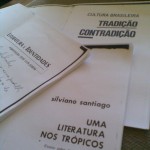

nisi na fejsbuku, nemam tvoj mejl. kako da te pronadjem?